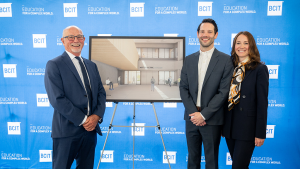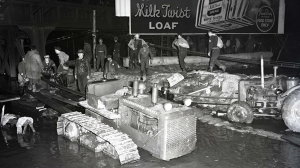If the province isn’t willing to come up with new revenue streams for infrastructure, then it needs to take a more aggressive approach to selling its Crown assets, a new report suggests.
Commissioned by the Residential and Civil Construction Alliance of Ontario (RCCAO), the report, entitled Unlocking Ontario’s Advantages: Building new infrastructure on the foundation of existing public assets by Michael Fenn, calls for asset recycling.
"Asset recycling is a concept that basically speaks to leveraging the existing investments that taxpayers’ have in public assets and tries to find a way to make them perform better and drive more value from that past investment," explains Fenn.
"If there’s an opportunity to generate additional revenues or an opportunity to involve the private sector in increasing the returns on the asset than those proceeds should be available to be invested in things that are current priorities."
"This isn’t selling the furniture to pay the mortgage on the house. It’s selling the clunker car to maybe buy a newer car. It’s an update, not an act of desperation," adds Andy Manahan, executive director of the RCCAO.
"This is a situation where it’s strategic reinvestment, so it’s looking at assets that maybe the government owns that aren’t core to its functioning anymore and can private sector discipline be brought to bear."
Fenn’s report is intended to give advice to the province and an advisory panel headed by Ed Clark on government assets.
The Clark panel released an interim report in November examining existing arrangements with Crown Corporations such as Ontario Power Generation, Hydro One and the Liquor Control Board of Ontario.
The idea was to look at ways to make these assets more efficient and market competitive. Rumours swirled about potentially selling the LCBO.
But the report didn’t call for this and instead warned against selling off such assets, suggesting an incremental approach to improving Ontario’s current economic situation.
The report stated $2 to $3 billion could be freed up and invested in transit and transportation infrastructure.
"It’s not that what the Clark panel is doing is not consequential in the sense of making the assets perform better and improving its management," assures Fenn.
However, "the mild medicine proposed does not seem to match the seriousness of the malaise," he writes, adding the province intends to spend $130 billion over the next 10 years on infrastructure, while also balancing the budget by 2017-18.
"We thought the Clark panel was going to be a little bit more ambitious," adds Manahan.
"It became more of a micromanagement exercise than something that was truly an asset recycling initiative."
Fenn states the government can turn to the private sector in certain instances and still be involved.
"If there’s a degree of uncertainty…then one of the more prudent ways to approach this is to sell a partial interest, to have people manage an asset on behalf of the government, to undertake a commission or a concession arrangement," Fenn says.
But the benefit of public-private partnerships (P3) should not be underestimated.
"In many cases, after years of private-sector management, government will inherit a much leaner and more efficiently run operation than it transferred to the private sector," he writes.
"That, in turn, either allows the government to continue to manage it in the same fashion, or to make the asset available to another private operator (or owner) in the future, at a much better price."
Overall Fenn suggests, "by using yesterday’s capital investments to fund today’s and tomorrow’s public priorities, governments can dislodge themselves from the vice-grip of a weak economy and crumbling infrastructure."
The Clark panel’s review is expected to surface in the spring and the RCCAO hopes some of the suggestions made in Fenn’s report will be taken into consideration.
"If the government isn’t willing to introduce new revenue streams to pay for infrastructure, such as road tolling let’s say, then you really have to be more aggressive with things like asset recycling," adds Manahan.
"It’s not the silver bullet, it’s not going to solve all of the problems, but something has to be done a little more ambitiously."
Follow Lindsey Cole on Twitter @DCN_Lindsey.











Recent Comments
comments for this post are closed